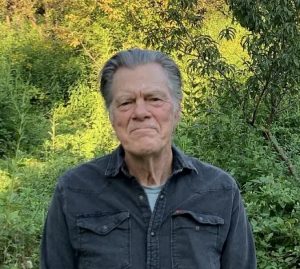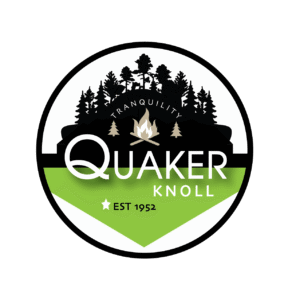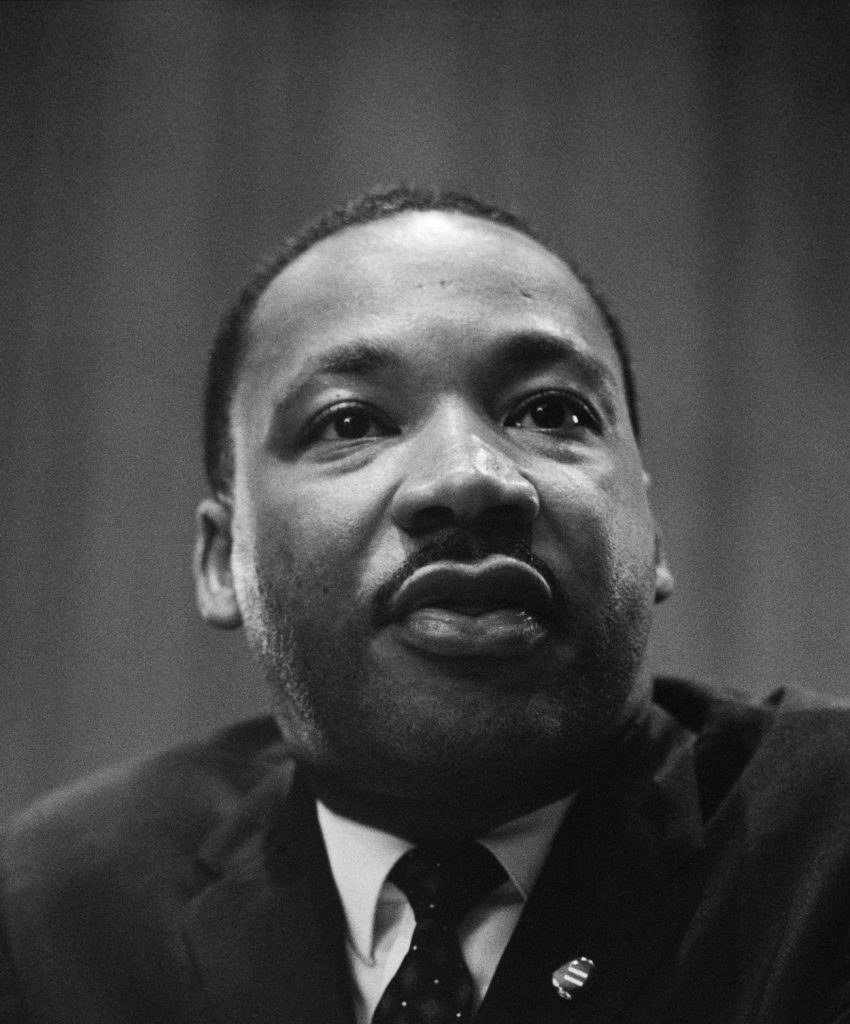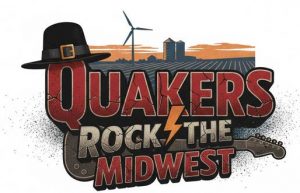By James R. Newby
Last year an article was written by Dr. Steve McSwain, titled, “Why Nobody Goes to Church Anymore.” He quotes a Hartford Institute for Religious Research report that says 40 percent of Americans say they go to church weekly. He writes that the truth is “20% are actually in church.” The article raises some important issues about why people are no longer going to church or Meeting. McSwain points to the changing demographics of America, as well as new technology, the competition of various activities on Sunday, and the leadership crisis, on which he blames the clergy abuse scandal and fundamentalist preachers who drive people away with their threatening language…Nobody wants to be told one is facing eternal damnation. He also says that phony advertising is driving people away. Churches advertise that “Everyone is welcome,” but this is not true. The Millennials can see right through this. McSwain points out that eight thousand to ten thousand churches will likely close this year, and that each year nearly three million previous churchgoers enter the ranks of the religiously unaffiliated. When persons are polled about their religious affiliation, the “Nones and Dones”…Those who have no religious affiliation, and those who have left the church for good, are the fastest growing group in the poll.
In his book, Sacred Eyes, Robert Keck writes: “If an old institution is to tap into the new soul-river, it must be courageous enough to dig a new well. If religious institutions are not up to that transformative task, they will eventually fail to serve as a re-connecting force for their people, will lose legitimacy, and will eventually die.” Robert Keck’s concern about digging “a new well” sounds very much like the “new wine” concern of Jesus
Friends, it is no secret that we are living in a transitional time, and religious institutions, including our Quaker Meetings, have not escaped the existential trauma that we are all feeling. Our culture is in the process of making new wineskins, and as Quakers, I believe that we need to be about the task of preparing the new wine. In transitional times such as these, even though religious institutions are struggling, the spiritual hunger that people are feeling is very intense.
All of us here today are involved in a spiritual journey, or spiritual quest. The question for us as a Yearly Meeting is, “How do we share what we have experienced as Quakers with the wider community?” “What can we offer this spiritually hungry world that will make our religious institutions relevant?” Or, “What kind of new wine can we make that can be put into the new wineskins that our culture is now making?”
I believe that Quakers, more so than any other group, can offer hope to those who are spiritually hungry. I believe that we can offer an alternative to those who are leaving Roman Catholicism and Mainline Protestantism, and who are seeking a spirituality that feeds their emotional and spiritual needs. I can only share this hope from my personal experience and from the experience of the Meeting I serve as Minister and Public Friend.
First, I believe that Quakers are in the transformation business. Our history is filled with those who have shared their transformation stories in their Journals. At our July gathering we will be focusing on John Woolman’s phrase, “Love was the first motion.” Before he wrote about this “motion” and toward the beginning of his famous Journal, Woolman writes about the spiritual transformation that led him to that place where he could recognize that “Love was the first motion:” “While I silently ponder on that change wrought in me,” he writes, “I find no language equal to convey to another any clear idea of it. I looked upon the works of God in this visible creation, and an awfulness covered me. My heart was tender and often contrite, and a universal love to my fellow creatures increased in me.” Here Woolman captures in succinct form what it means to be spiritually transformed…It is the process of tenderizing one’s heart which issues in an increasing universal love toward one’s fellow creatures.
I believe that John Pentland is right when he says, “Today people are rejecting doctrinal belief. They are seeking instead an alive spiritual trust that engages all parts of our humanity–body, mind and spirit. They are seeking an experience that unites the integrating self with the rough and tumble of the world. So many people intuit that the sacred and what matters to them are one and the same thing. And they need a safe space in which to explore this.” Friends, this would be an important goal for every Quaker Meeting…To provide that “Safe Space” for people to explore their spirituality…to develop that density of readiness that will help make possible an experience of transformation. What are the practical ways that we can do this?
I am convinced that developing a density of readiness is first nurtured in small groups of like hearted seekers. It is not a mystery to most of you that I love Cincinnati Friends Meeting. It is one of those special, safe places where people are allowed to work on their spiritual issues without the fear of ridicule or being judged. We are a Meeting that is made up of everything from Evangelical Christian to Universalist. We are an Open and Affirming Congregation and a Solidarity Congregation in relationship with the Sanctuary Movement. The sign in our front yard says, “All are Welcome,” and we mean it.
Each year at Cincinnati Meeting, for those who are interested, we gather to talk about the various spiritual needs within our congregation, and what spiritual nurture and study groups we would like to pursue. As of now, we have groups focusing on Everyday Mysticism, The Spirituality of Ken Wilbur, The Bible Basics, The People Called Quakers, The Tao Study Group, Daytime Spirituality, and others. With the recent approval of our Meeting, we are adding a part-time person to our staff whose title is “Spiritual Nurturer.” There will be other small groups added as a result. What I hope that we can offer is some kind of small group for everyone, where visitors to our Meeting, or long time members can feel comfortable, in a safe space, discussing how to integrate their spiritual selves with the world. And this process of integration is intensified through our style of worship and our testimonies.
And so, we seek to be agents of transformation in a world that is in desperate need of spiritual renewal. Transformation, however, does not end with persons finding a safe space to work out their spirituality. Spiritual transformation…the tenderizing of one’s heart, in the words of John Woolman, will lead to an increase in universal love to our fellow creatures. This is the “Double Priority” for the people called Quakers. I recently read an article that a friend sent me describing some of the turmoil that is taking place within the Universalist and Unitarian Church…between those who believe that the church should be a place for the development of personal spirituality, and those who believe that the church should be a vehicle for transforming the world. Of course, it is both! I believe that when Quakerism is at its best, we are called to not only provide a safe space for the transformation of individuals, but also to seek ways to transform our world.
And so, an important component to the new wine we need to be making, and which will keep us relevant in an ever changing world of new wineskins, is to be agents of love and care in our increasingly fractured communities. Our communities of faith need to continuously be challenged with a vision toward ministry and service. When a congregation is focused inward on the question of survival as an institution, and “How do we keep our members content?” it has missed its call. When we focus outside of ourselves, new life is the result. “What are the needs of the community in which we reside?” “Who is hurting and needs a helping hand?” “How can we meet these needs and heal these hurts?”
All of our Meetings are in the midst of a whirlwind of chaos and change. History shows that out of every chaotic period in the past, new ideas, new directions and new life have formed and developed. Our Meetings have prevailed through the darkest of times and have historically been like anvils wearing out many negative cultural hammers. Our Meetings can be, at their best, and even now, prisms through which the Divine Light passes.
To reiterate what we most certainly already know, people in our world are spiritually hungry and looking for safe spaces to work out their spirituality, as well as to find communities of faith that are providing help and healing to a hurting world. If my “Never drink a drop of alcohol” Quaker grandmother will forgive me, I suggest that this particular time requires our Meetings to become Wineries of transformation and love. In the words of Elton Trueblood, “Somewhere in the world there should be a society consciously and deliberately devoted to the task of seeing how love can be made real and demonstrating love in practice. Unfortunately, there is really only one candidate for this task. If God, as we believe, is truly revealed in the life of Christ, the most important thing to Christ is the creation of centers of loving fellowship, which in turn infect the world. Whether the world can be redeemed in this way we do not know, but it is at least clear that there is no other way.”





